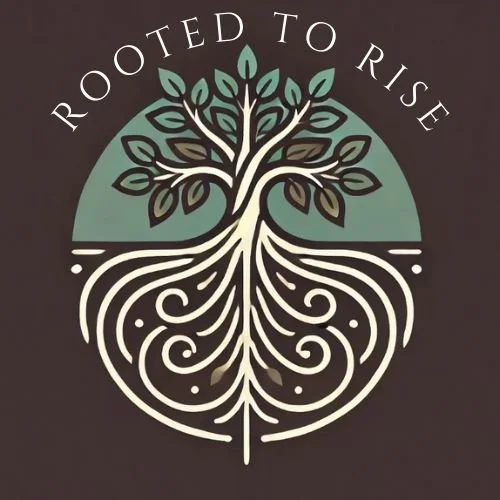Spring 2026
✩
Enrollment Opens on November 1st
✩
✩
Spring 2026 ✩ Enrollment Opens on November 1st ✩ ✩
Nature-Based Learning Program
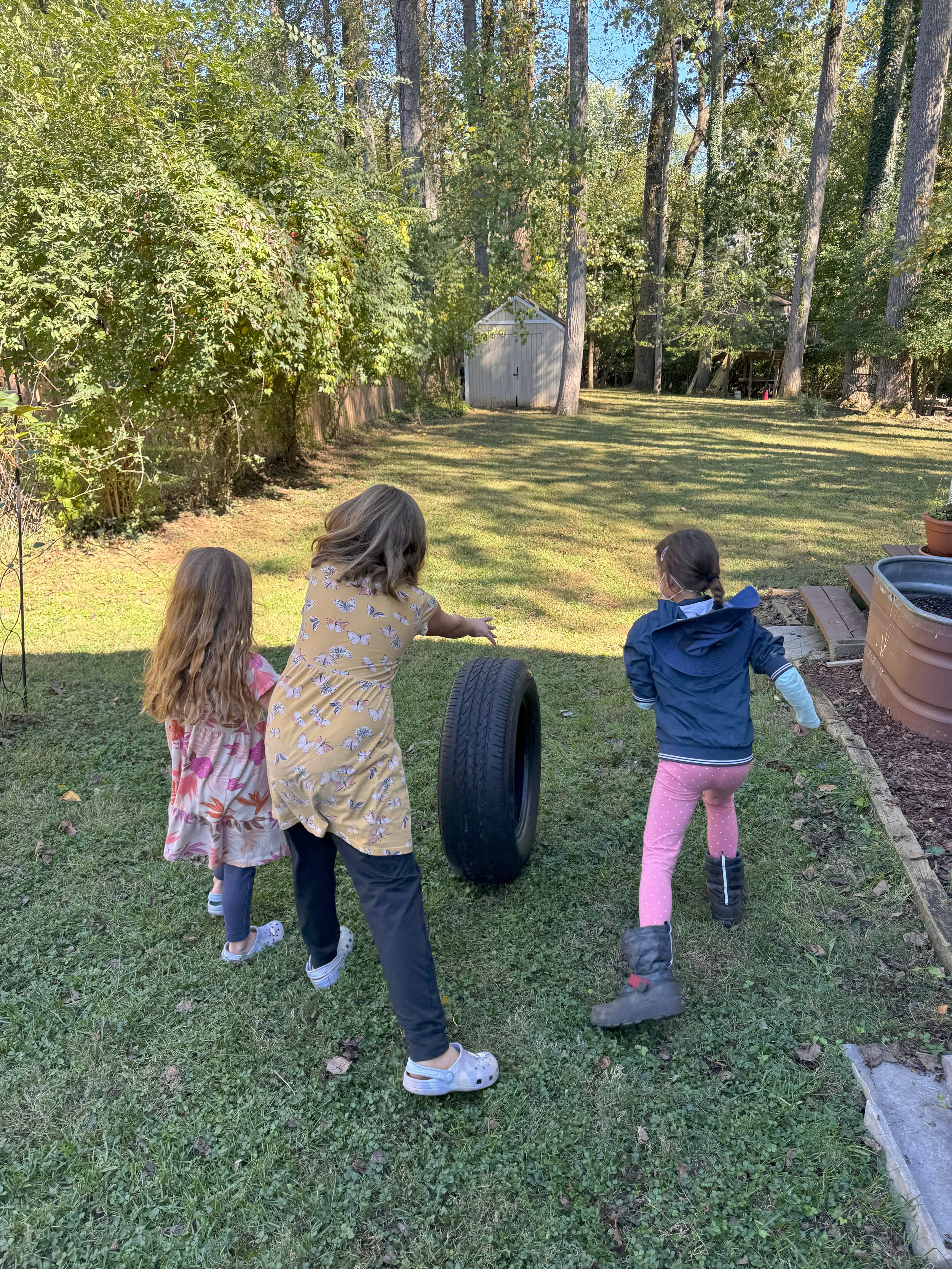




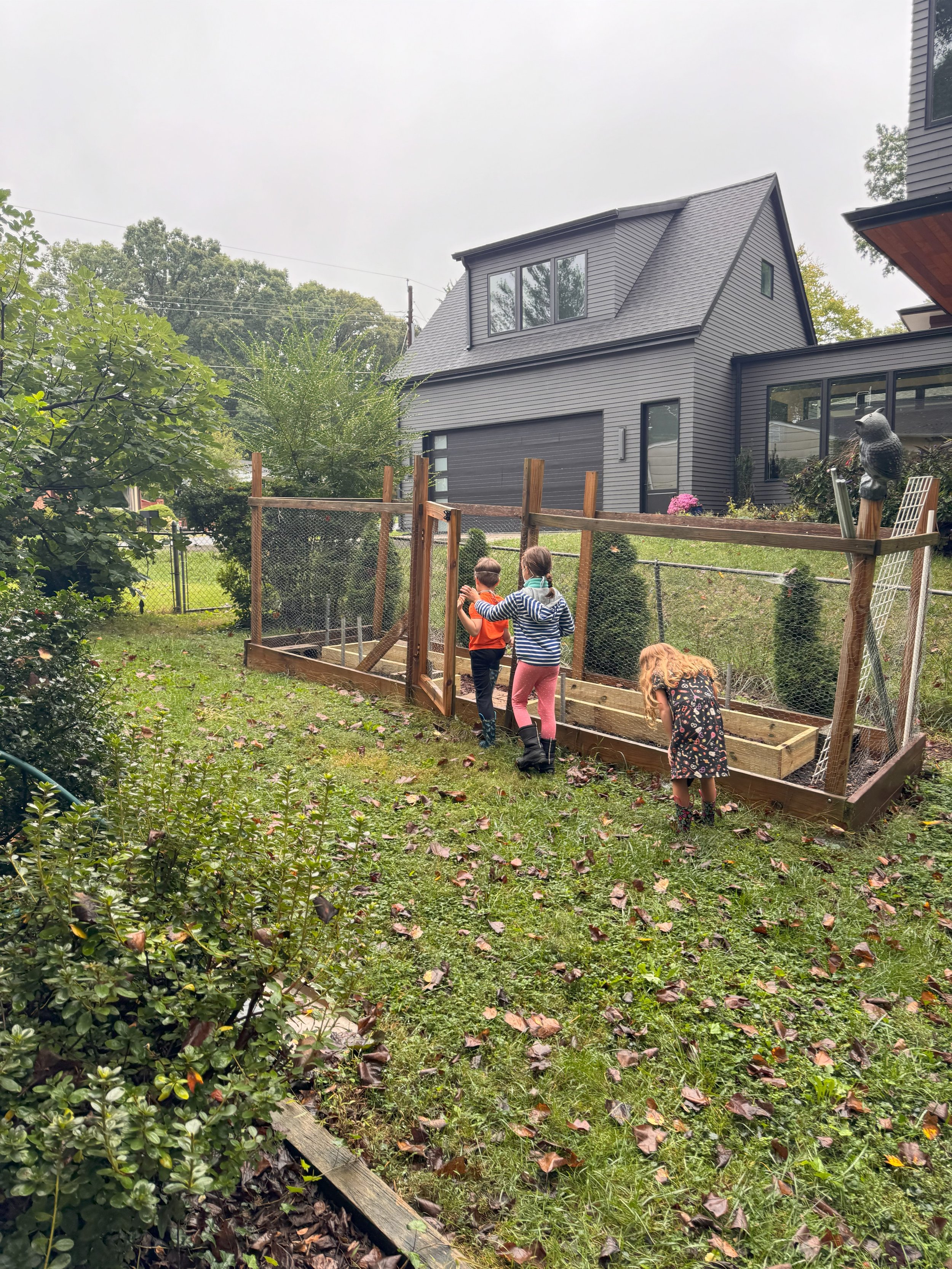
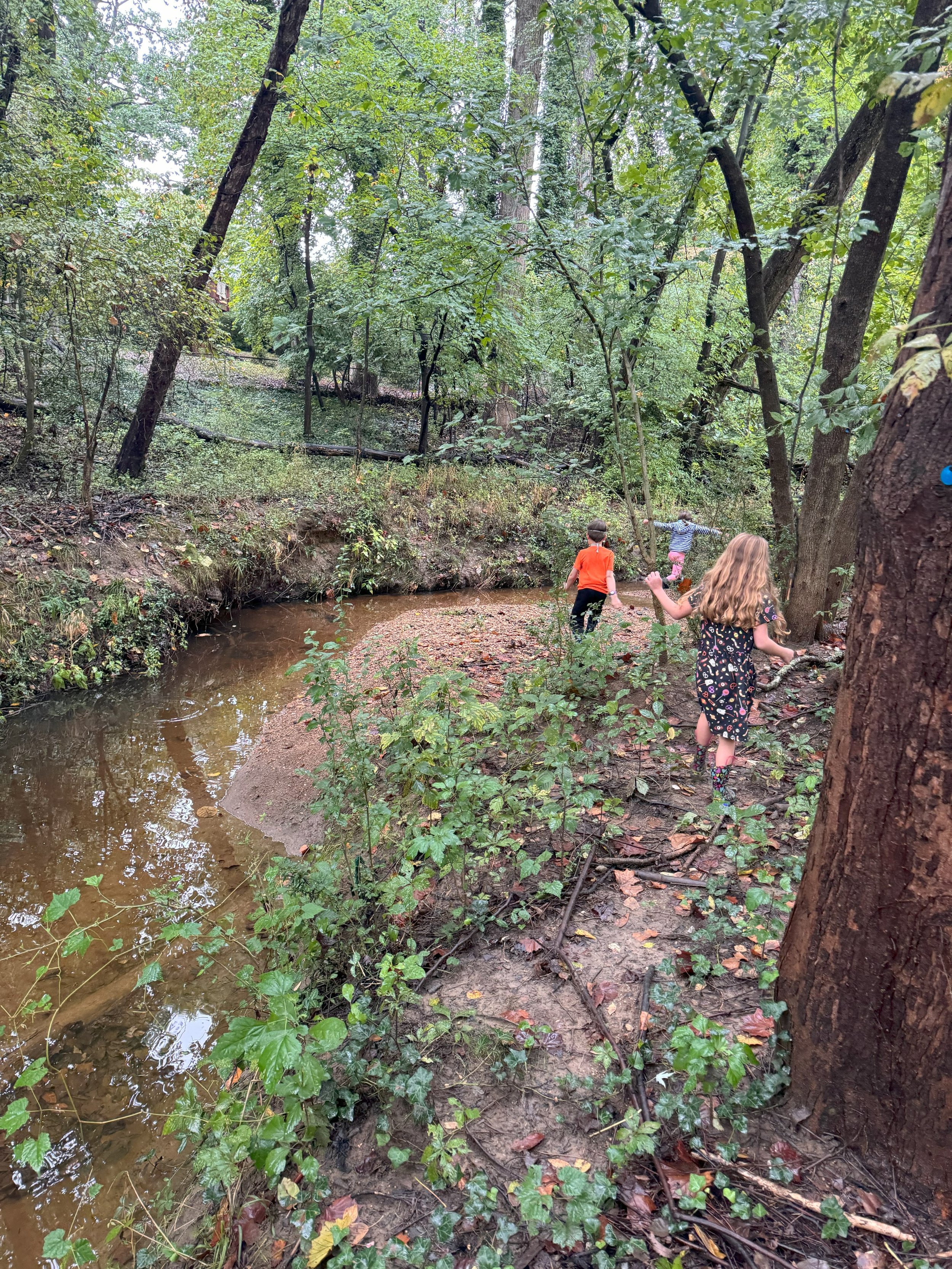








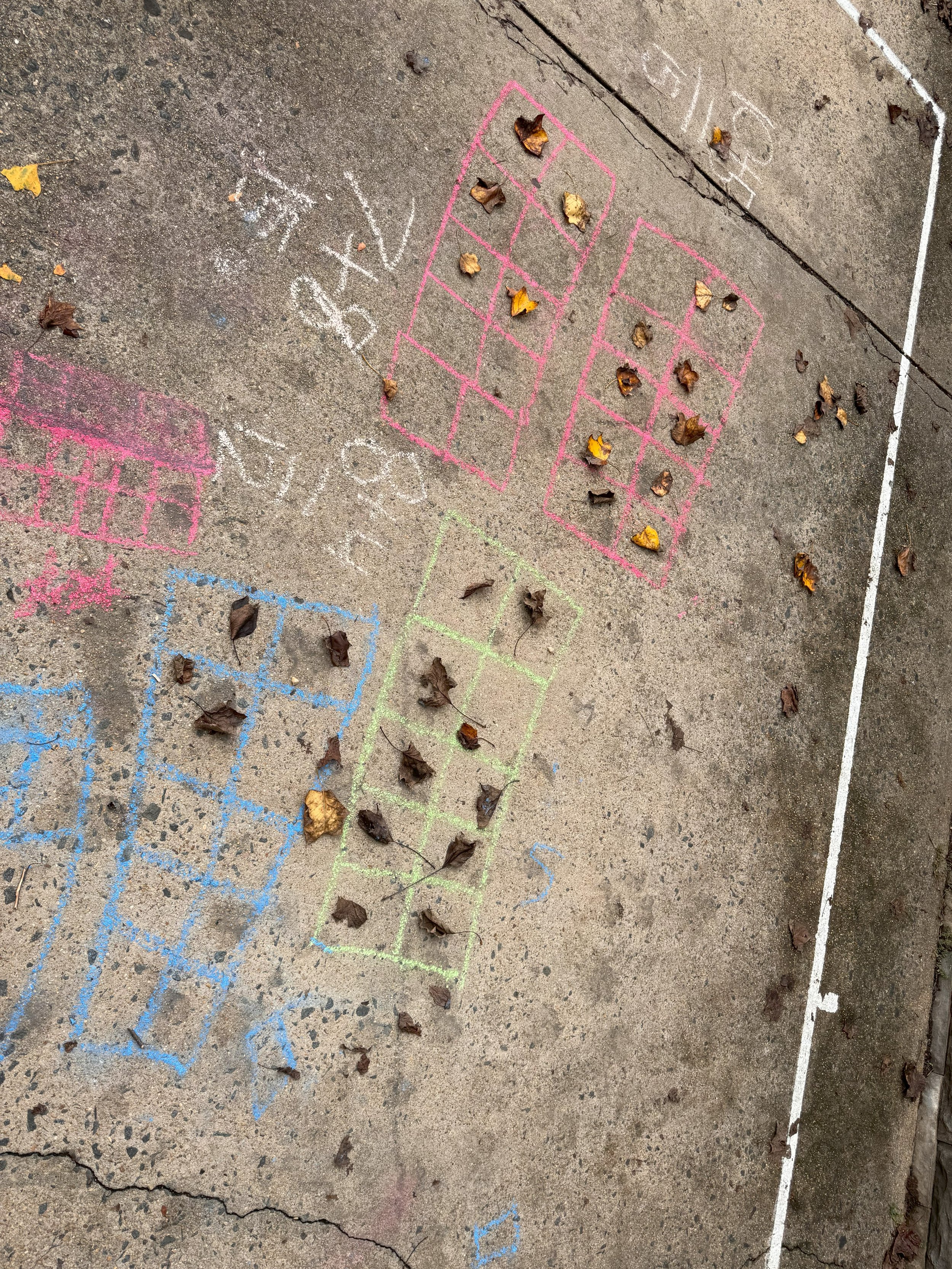






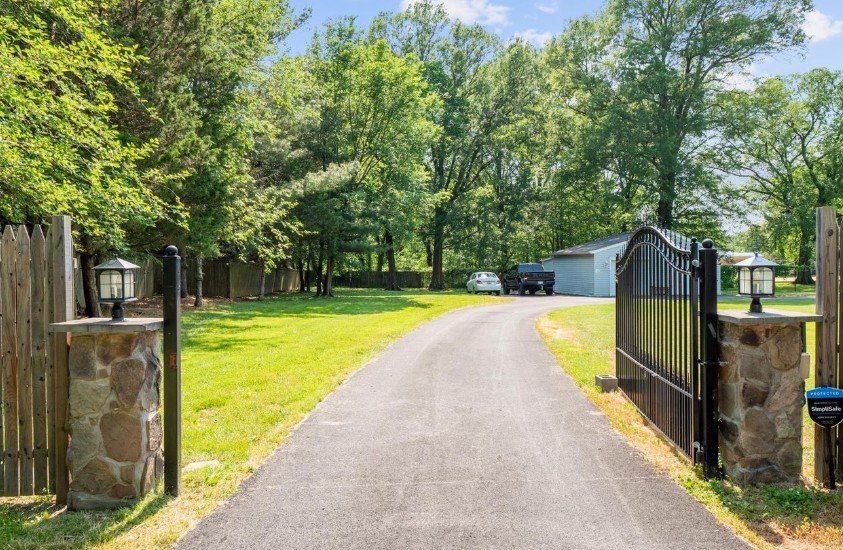
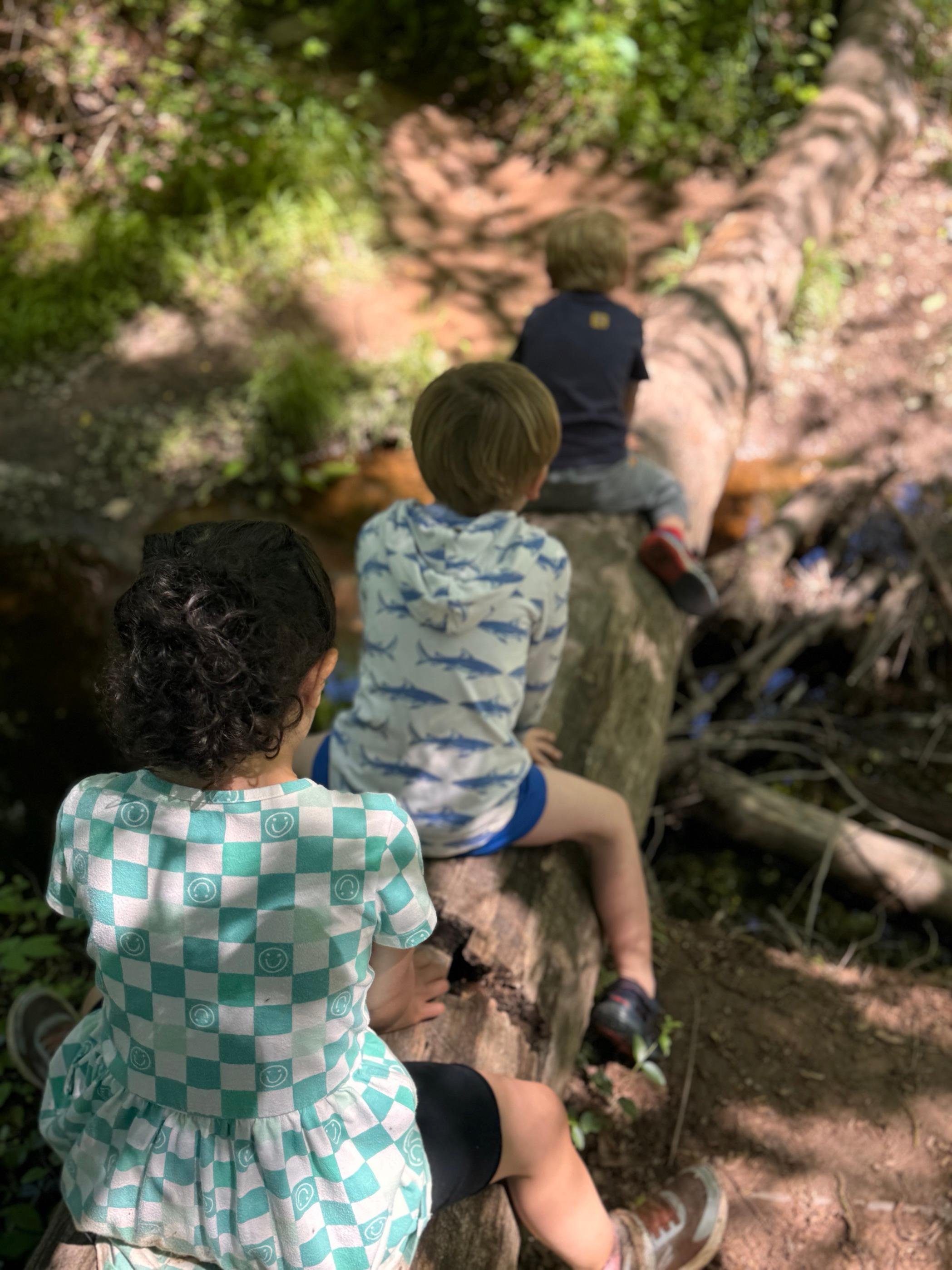
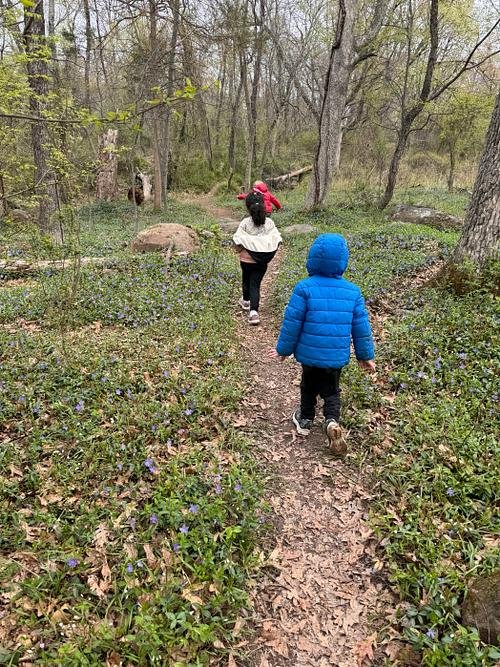
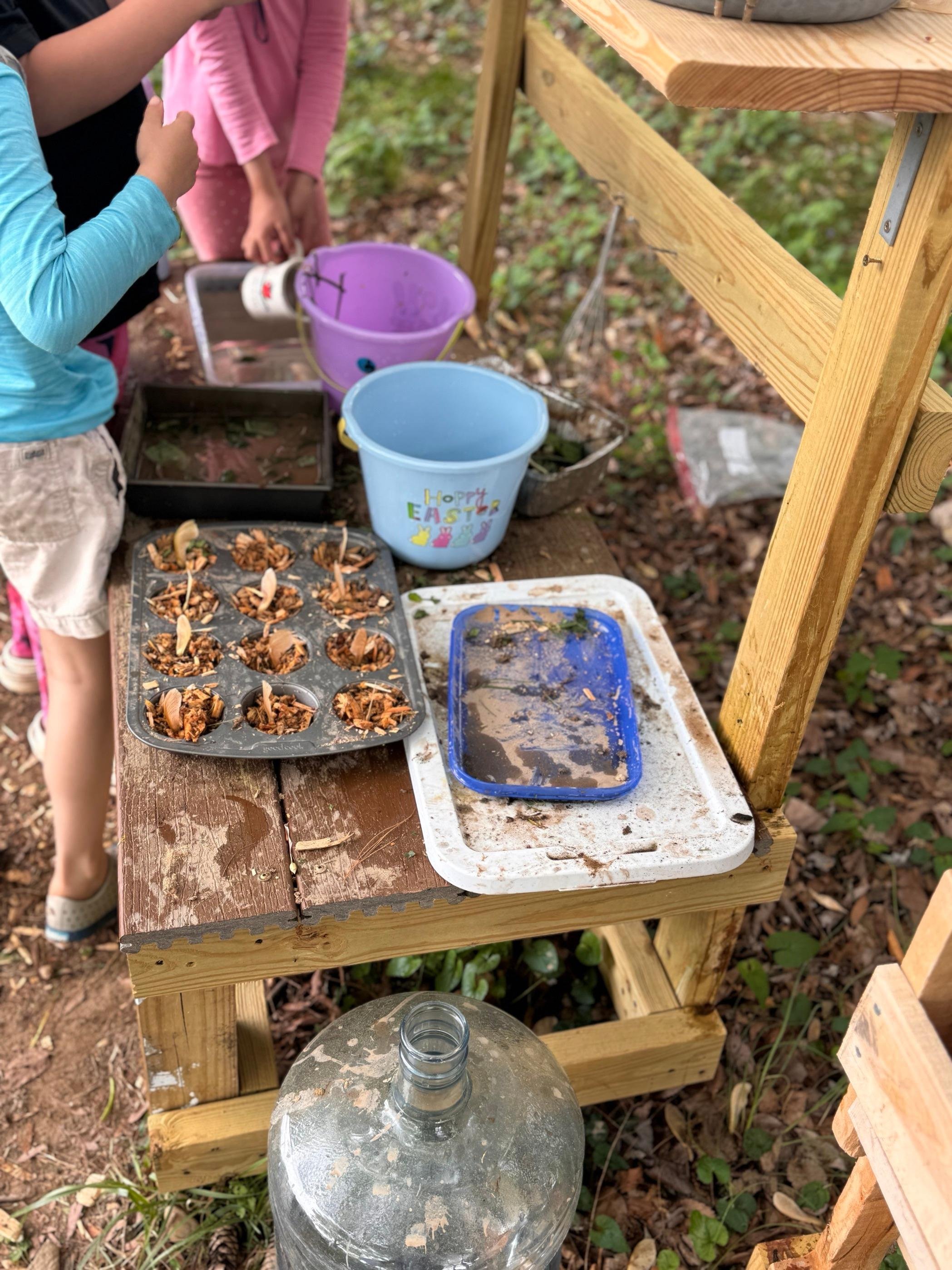
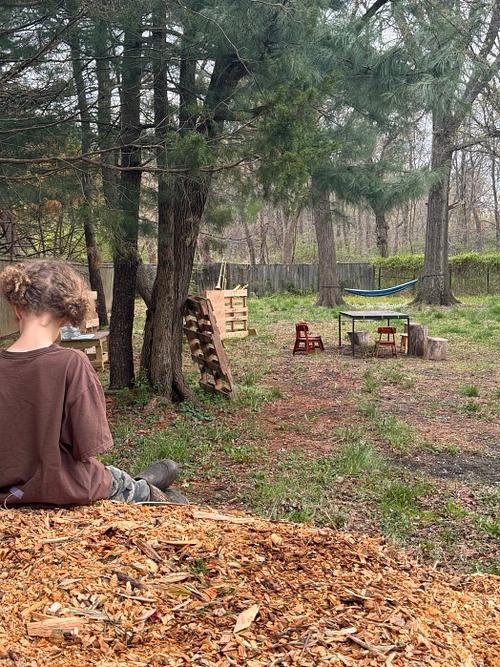
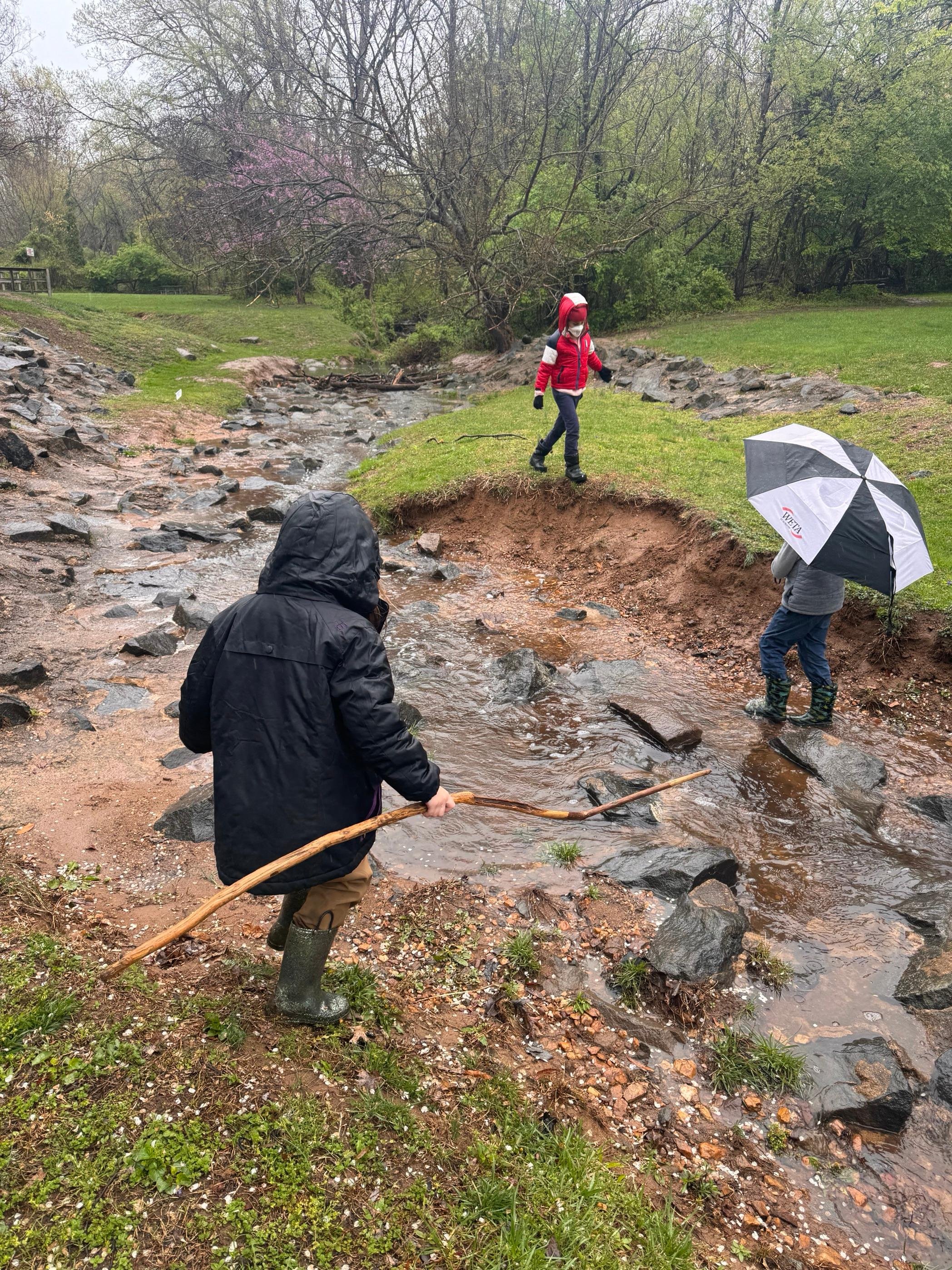




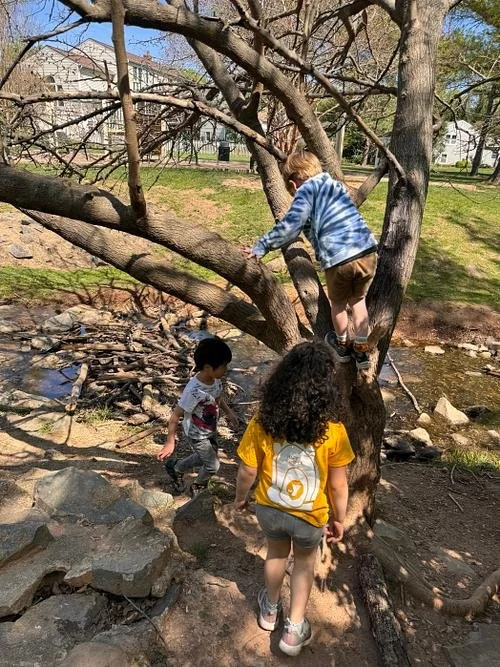
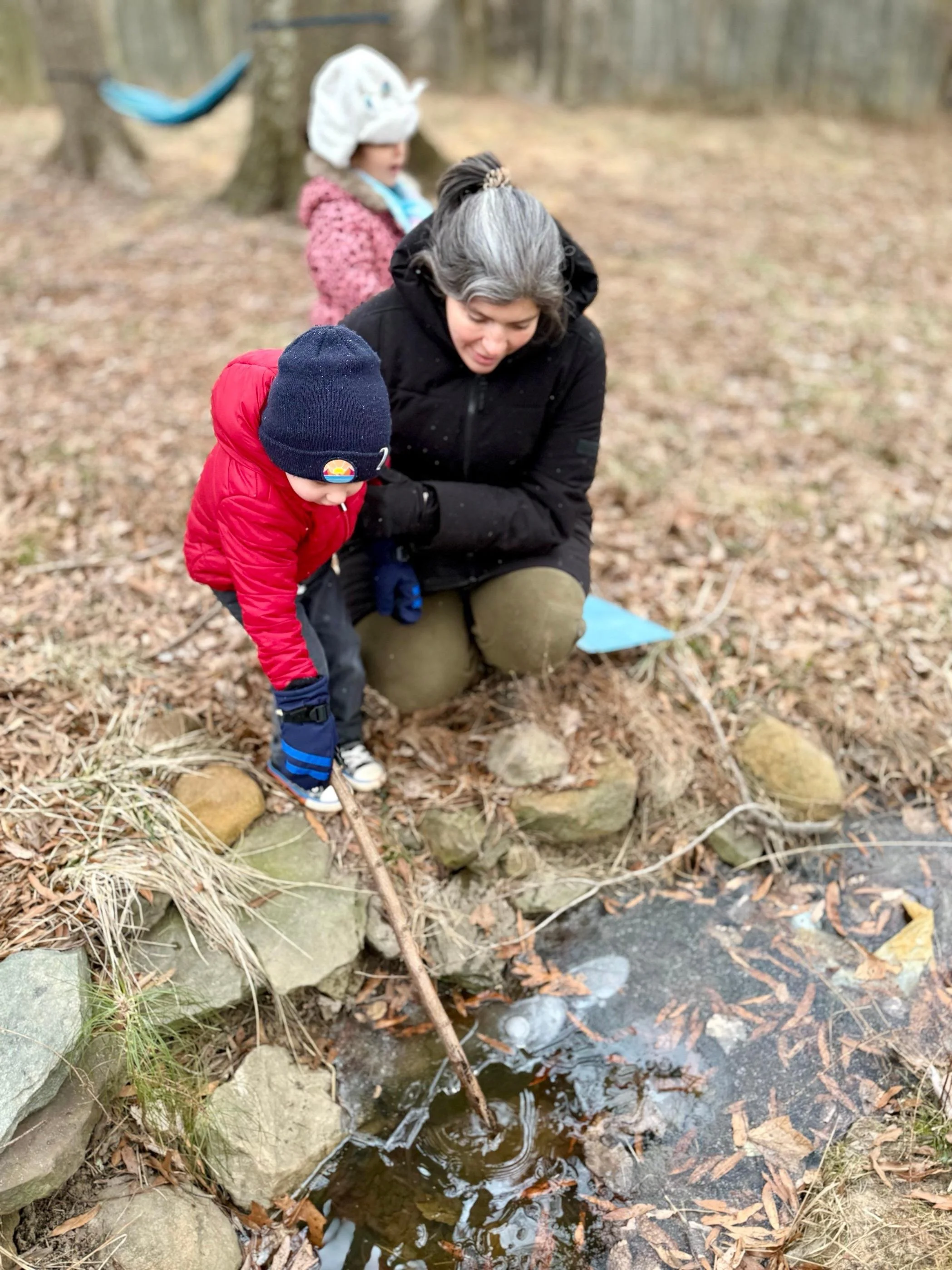




🌟 Join Our Spring Program at Little Roots Academy! 🌟
Are you seeking a nurturing, nature-based learning environment where your child can grow through curiosity, creativity, and connection?
Welcome to Little Roots Academy.
Spring Program Highlights:
- Nature-Based Learning: Our curriculum integrates all subject areas, including math, ELA,
science/social studies,
SEL, and nature exploration.
-Homeschool Enrichment Program: Little Roots Academy is a homeschool enrichment program that supports Virginia homeschooling families through seasonal, outdoor learning. Our program blends academics with play, offering a nurturing space for homeschoolers to connect, grow, and thrive.
- Small Class Size: Only 12 students, ensuring personalized attention (2:12 ratio)
- Ages: Little Acorns: 3-5 years old (Children must be potty trained in order to attend)
Mighty Maples: 6-9 years old
Noble Oaks: 10-12 years old-Mentorship for Mighty Maple Graduates Only
-Start Date: January 20th
- Themes: Monthly nature themes related to VA SOLs but also child-led exploration
-Location: Herndon, VA
📅 Enrollment Opens November 1st for the Spring Session!
Spaces are limited, so secure your child's spot today.
Schedule Overview
-
Duration: 17 weeks or Extended 20 weeks
Schedule: Tuesday and Wednesday, 10:30 AM – 2:30 PMBi-Monthly Community Excursions & Parent Volunteer Opportunities
Twice a semester, our Little Acorns program includes a special community excursion to explore local parks, gardens, or nature centers. These outings provide hands-on experiences that connect to our seasonal themes and nurture curiosity, observation, and a sense of wonder. Parent volunteers are encouraged to join and support our community learning experiences.
Little Acorns Daily Schedule
10:30 – 10:50 AM | Morning Circle & Welcome (20 minutes)
Focus: Social and Emotional Development, Language Arts
Greeting song, group check-in, and discussion of the day’s theme
Fingerplays and movement games to strengthen rhythm and focus
Setting intentions and practicing gratitude for the day ahead
10:50 – 12:00 PM | Nature Exploration & Outdoor Learning (70 minutes)
Focus: Science, Math, Physical Education, Approaches to Learning
Exploration of natural spaces on campus through guided walks, sensory play, and discovery
Hands-on observation of plants, animals, weather, and seasonal changes
Gentle introduction to math and science through counting natural items, comparing sizes, and noticing patterns
Encourages problem-solving, resilience, and cooperation through outdoor challenges and play
12:00 – 1:00 PM | Lunch & Free Play (60 minutes)
Focus: Health, Physical Education, Social Development
Outdoor picnic lunch followed by unstructured play in the garden or play area
Opportunities to practice independence, social awareness, and turn-taking
Time to nourish the body and connect with friends through conversation and imaginative play
1:00 – 1:50 PM | Storytelling & Creative Work (50 minutes)
Focus: Language Arts, Art, and Social Studies
Story time inspired by nature, the seasons, or kindness and community
Discussion and retelling to strengthen comprehension and memory
Creative follow-up through watercolor painting, clay work, or seasonal crafts
Activities encourage imagination, fine motor development, and artistic expression
1:50 – 2:15 PM | Movement & Music (25 minutes)
Focus: Music, Physical Education, Social and Emotional Development
Singing, dancing, and rhythm instruments to develop coordination and listening
Yoga or movement games to support balance, strength, and emotional regulation
Group cooperation through circle games or parachute play
2:15 – 2:30 PM | Closing Circle & Reflection (15 minutes)
Focus: Social and Emotional Development, Approaches to Learning
Reflection on the day’s discoveries and joys
Gratitude or goodbye song to bring gentle closure to the day
Opportunity for each child to share a favorite moment or new insight
Integrated Areas of Focus
Math: Number sense, patterning, geometry, measurement through hands-on exploration
Science: Seasons, weather, living systems, sensory observation, inquiry-based learning
Language Arts: Listening, speaking, storytelling, comprehension, and early phonological awareness
Social Studies: Community, cooperation, family, and respect for the Earth as our shared home
Music and Art: Singing, rhythm, creative expression through color, texture, and form
Health and Physical Education: Gross and fine motor development, outdoor play, nutrition, mindfulness
Approaches to Learning: Curiosity, persistence, initiative, focus, cooperation
Social and Emotional Development: Friendship, empathy, resilience, self-expression, emotional awarenessLittle Acorns Program Overview (Ages 3–5)
The Little Acorns program at Little Roots Academy provides a nurturing, play-based introduction to learning that supports the whole child—head, heart, and hands. Rooted in nature and guided by the rhythm of the seasons, each day unfolds through movement, song, storytelling, and exploration, helping young children develop a deep sense of wonder and connection to the world around them.
Learning in the Little Acorns class is gentle and intentional. Early academic foundations in math and literacy emerge organically through hands-on experiences—counting pinecones, tracing letters in the sand, measuring puddles, or creating patterns from leaves and stones. Through these experiences, children build the groundwork for number sense, language, and critical thinking in a way that feels alive, meaningful, and joyful.
The program integrates elements of Waldorf and Montessori philosophies, emphasizing rhythm, beauty, sensory engagement, and respect for each child’s natural developmental pace. The classroom and outdoor environment are designed to inspire imagination, creativity, and confidence while cultivating important life skills such as independence, problem-solving, and collaboration.
Social and emotional growth is at the heart of the Little Acorns experience. Children learn to express emotions, care for one another, and work together through play, shared storytelling, and cooperative activities. Daily mindfulness moments—such as gratitude circles, gardening, or quiet observation—help children strengthen focus, patience, and resilience.
Each week, the children engage in hands-on, project-based learning inspired by the natural world. Activities such as gardening, cooking with natural ingredients, and creating art from found materials help them connect with the cycles of the Earth and develop a sense of stewardship for our shared home.
The Little Acorns program honors early childhood as a sacred and foundational stage of life—where curiosity is the curriculum, nature is the classroom, and joy is the teacher.
-
Mighty Maples Program Overview
Duration: 17 weeks or Extended 20 weeks
Schedule: Thursdays and Fridays, 10:30 AM – 3:30 PMCommunity Excursions & Parent Involvement
Twice each semester, our Mighty Maples embark on special community excursions to explore nature, local parks, or community spaces. These outings offer rich, hands-on learning experiences that connect directly to our weekly themes and seasonal studies. Parents are warmly invited to join and support these trips, helping to deepen community connection and enhance the children’s learning experiences.
Daily Rhythm
10:30 – 10:50 AM | Morning Circle & Welcome (20 minutes)
Focus: Social and Emotional Development, Language ArtsGroup check-in, greetings, and overview of the day
Set intentions and reflect on the previous week
Practice self-expression and build community connection through conversation, rhythm, and song
10:50 – 11:40 AM | Nature Exploration (50 minutes)
Focus: Whole-Child Development, Science, Inquiry, Problem SolvingEngage in guided exploration of the environment to spark curiosity and wonder
Observe seasonal changes, natural patterns, and living systems
Encourage teamwork and problem-solving through organic challenges such as navigating trails, building simple structures, or crossing a stream
Use discoveries from exploration as inspiration for the day’s academic and creative work
11:40 AM – 12:30 PM | Math Exploration (50 minutes)
Focus: Math, Approaches to LearningHands-on math activities tailored to each child’s level, aligned with VA SOL standards
Incorporate rhythm, movement, and manipulatives to support comprehension
Connect mathematical concepts to real-world experiences and nature observations
12:30 – 1:30 PM | Lunch & Free Play (60 minutes)
Focus: Health and Physical Education, Social DevelopmentOutdoor picnic lunch followed by unstructured play in the garden, meadow, or treehouse
Encourage friendship-building, creativity, and self-directed social play
1:30 – 2:20 PM | ELA Block (50 minutes)
Focus: Language Arts, Handwriting, Social and Emotional DevelopmentReading and writing activities aligned with VA SOL standards and individualized to each child’s level
Practice handwriting and penmanship through nature journaling, copywork, and story writing
Write personal narratives or nature-inspired stories
Participate in read-aloud, poetry, or journaling sessions
Build comprehension and storytelling skills through group discussion and reflection
2:20 – 2:35 PM | Handwork or Creative Form Drawing (15 minutes)
Focus: Fine Motor Skills, Focus, Art, and MindfulnessEngage in purposeful, hands-on creative work such as weaving, sewing, or watercolor painting
Practice patience, coordination, and inner calm through artistic expression and geometric form drawing
2:35 – 3:00 PM | Science, Social Studies, or SEL (Alternating) (25 minutes)
Focus: Science, Social Studies, or Social-Emotional LearningRotate weekly between inquiry-based science, community and cultural studies, and emotional growth lessons
Explore real-world themes through observation, group projects, and storytelling
Foster reflection, empathy, and awareness of the world and one another
3:00 – 3:15 PM | Afternoon Free Play (15 minutes)
Focus: Movement, Social Connection, Integration of LearningProvide unstructured outdoor play to release energy, foster social skills, and allow creativity to unfold naturally
Encourage cooperation, imaginative problem-solving, and physical activity
3:15 – 3:30 PM | Closing Circle, Snack, & Pick-Up (15 minutes)
Focus: Reflection, Gratitude, and CommunityEnjoy a light snack while reflecting on the day’s experiences
Share moments of gratitude and intention for the coming week
Close with song, rhythm, or storytelling
Integrated Areas of Focus
Math: Aligned with VA SOL standards to meet each child’s developmental level
ELA (English Language Arts): Aligned with VA SOL standards; includes handwriting, storytelling, journaling, poetry, and reading comprehension
Science: Observation, inquiry, life processes, and the interconnectedness of natural systems
Social Studies: Community awareness, geography, cooperation, and stewardship
Health and Physical Education: Motor development, wellness, and outdoor movement
Social and Emotional Learning: Empathy, communication, conflict resolution, and mindfulness
Approaches to Learning: Curiosity, initiative, persistence, and cooperation
Handwork & Art: Creativity, coordination, patience, and focus through purposeful craft
Overview of the Day
This 5-hour rhythm balances guided academics, outdoor exploration, creative work, and meaningful collaboration. The morning nature exploration serves as the foundation for the day’s learning, sparking curiosity and grounding students in experiential observation that flows into math, language, and art.
Each part of the day builds upon the last, allowing learning to unfold through living, interconnected stages that mirror the natural rhythms of growth. The thoughtful balance of academics, handwork, and free play nurtures both intellectual development and emotional well-being, supporting capable, compassionate learners who approach challenges with creativity, confidence, and care for the Earth and one another.
-
Noble Oaks Mentorship Program
🌿 Community Excursions & Leadership Opportunities
Twice each semester, Noble Oaks participants take part in special community excursions to explore nature, local parks, or community spaces. These outings offer meaningful leadership experiences where mentors guide younger students, model stewardship, and connect real-world learning to nature-based studies.
🌟 Mentorship Focus
Noble Oaks participants develop leadership, communication, and collaboration skills by serving as role models for younger students. They engage in advanced, inquiry-driven academics while deepening self-awareness, empathy, and a sense of purpose within the Little Roots community.
Daily Rhythm
10:30 – 10:50 AM | Morning Leadership Circle (20 minutes)
Focus: Social and Emotional Development, Language Arts, LeadershipGroup check-in, greetings, and overview of the day
Mentors set personal goals and reflect on their leadership roles
Develop skills in active listening, mindfulness, and teamwork
10:50 – 11:40 AM | Nature Exploration & Peer Mentoring (50 minutes)
Focus: Science, Inquiry, Leadership, Problem SolvingParticipate in guided outdoor exploration to inspire curiosity and leadership through service
Assist younger Mighty Maples students in observation, exploration, and inquiry
Engage in advanced environmental studies, field journaling, and ecological awareness
11:40 AM – 12:30 PM | Advanced Math Exploration (50 minutes)
Focus: Math, Problem Solving, Critical ThinkingEngage in hands-on math activities that extend Mighty Maples lessons
Practice problem-solving through real-world applications, strategy games, and group challenges
Offer peer support to younger students during collaborative math projects
12:30 – 1:30 PM | Lunch & Peer Social Time (60 minutes)
Focus: Health and Physical Education, Social DevelopmentEnjoy outdoor lunch and free play while nurturing friendship and social awareness
Mentors model healthy peer interaction and assist in guiding younger students during free play
1:30 – 2:20 PM | Advanced ELA & Writing (50 minutes)
Focus: Language Arts, Handwriting, Creative Writing, Communication SkillsParticipate in deeper discussions around literature, storytelling, and communication
Practice handwriting and written expression through essays, poetry, or reflective journaling
Model effective writing habits and provide peer support during shared literacy activities
2:20 – 2:35 PM | Handwork or Creative Form Drawing (15 minutes)
Focus: Fine Motor Skills, Focus, Art, and MindfulnessEngage in mindful, artistic handwork such as fiber arts, watercolor, or geometric form drawing
Build focus, patience, and fine motor skills while creating with purpose
2:35 – 3:00 PM | Science, Social Studies, or SEL (Alternating) (25 minutes)
Focus: Science, Social Studies, or Social-Emotional LearningAlternate weekly between environmental science, cultural studies, and leadership-centered SEL lessons
Explore themes like sustainability, ecosystems, and community responsibility
Reflect on personal growth and the role of leadership in stewardship
3:00 – 3:15 PM | Afternoon Free Play (15 minutes)
Focus: Movement, Social Connection, Integration of LearningUnstructured play to release energy and foster social connection
Encourage leadership through collaboration, imagination, and kindness in shared spaces
3:15 – 3:30 PM | Closing Reflection & Mentor Check-In (15 minutes)
Focus: Reflection, Leadership, and Emotional Well-BeingReflect on the day’s learning, leadership experiences, and personal growth
Share gratitude and celebrate accomplishments
End the day with a mindfulness or grounding activity to close with intention
Integrated Areas of Focus
Leadership Development: Mentorship training, goal-setting, communication, and self-reflection
Math: Advanced problem-solving, critical thinking, and applied learning
ELA (English Language Arts): Creative writing, journaling, handwriting, and literature study
Science: Environmental science, sustainability, and ecological inquiry
Social Studies: Community awareness, cultural appreciation, and social responsibility
Health and Physical Education: Movement, mindfulness, and outdoor wellness
Social and Emotional Learning: Empathy, teamwork, self-awareness, and leadership presence
Approaches to Learning: Independence, curiosity, initiative, persistence, and cooperation
Handwork & Art: Creativity, precision, patience, and focus through purposeful craft
Overview of the Program
The Noble Oaks Mentorship Program offers a meaningful bridge between childhood exploration and emerging independence. It provides Mighty Maples graduates with opportunities to grow as leaders, mentors, and creative thinkers while continuing to learn through hands-on, nature-based academics.
Through mentorship, collaboration, and advanced study, Noble Oaks participants deepen their understanding of core subjects while embodying the values of compassion, curiosity, and responsibility. The program balances academic growth with emotional intelligence, preparing students to thrive as confident, capable, and heart-centered leaders within their communities and beyond.
-
Duration: TBD
Monday and Tuesday (10:30 AM – 2:30 PM)
Little Acorns Program Overview (Ages 3–5)
The Little Acorns program at Little Roots Academy provides a nurturing, play-based introduction to learning that supports the whole child—head, heart, and hands. Rooted in nature and guided by the rhythm of the seasons, each day unfolds through movement, song, storytelling, and exploration, helping young children develop a deep sense of wonder and connection to the world around them.
Learning in the Little Acorns class is gentle and intentional. Early academic foundations in math and literacy emerge organically through hands-on experiences—counting pinecones, tracing letters in the sand, measuring puddles, or creating patterns from leaves and stones. Through these experiences, children build the groundwork for number sense, language, and critical thinking in a way that feels alive, meaningful, and joyful.
The program integrates elements of Waldorf and Montessori philosophies, emphasizing rhythm, beauty, sensory engagement, and respect for each child’s natural developmental pace. The classroom and outdoor environment are designed to inspire imagination, creativity, and confidence while cultivating important life skills such as independence, problem-solving, and collaboration.
Social and emotional growth is at the heart of the Little Acorns experience. Children learn to express emotions, care for one another, and work together through play, shared storytelling, and cooperative activities. Daily mindfulness moments—such as gratitude circles, gardening, or quiet observation—help children strengthen focus, patience, and resilience.
Each week, the children engage in hands-on, project-based learning inspired by the natural world. Activities such as gardening, cooking with natural ingredients, and creating art from found materials help them connect with the cycles of the Earth and develop a sense of stewardship for our shared home.
The Little Acorns program honors early childhood as a sacred and foundational stage of life—where curiosity is the curriculum, nature is the classroom, and joy is the teacher.
Little Acorns Daily Schedule
Bi-Monthly Community Excursions & Parent Volunteer Opportunities
Twice a semester, our Little Acorns program includes a special community excursion to explore local parks, gardens, or nature centers. These outings provide hands-on experiences that connect to our seasonal themes and nurture curiosity, observation, and a sense of wonder. Parent volunteers are encouraged to join and support our community learning experiences.
10:30 – 10:50 AM | Morning Circle & Welcome (20 minutes)
Focus: Social and Emotional Development, Language Arts
Greeting song, group check-in, and discussion of the day’s theme
Fingerplays and movement games to strengthen rhythm and focus
Setting intentions and practicing gratitude for the day ahead
10:50 – 12:00 PM | Nature Exploration & Outdoor Learning (70 minutes)
Focus: Science, Math, Physical Education, Approaches to Learning
Exploration of natural spaces on campus through guided walks, sensory play, and discovery
Hands-on observation of plants, animals, weather, and seasonal changes
Gentle introduction to math and science through counting natural items, comparing sizes, and noticing patterns
Encourages problem-solving, resilience, and cooperation through outdoor challenges and play
12:00 – 1:00 PM | Lunch & Free Play (60 minutes)
Focus: Health, Physical Education, Social Development
Outdoor picnic lunch followed by unstructured play in the garden or play area
Opportunities to practice independence, social awareness, and turn-taking
Time to nourish the body and connect with friends through conversation and imaginative play
1:00 – 1:50 PM | Storytelling & Creative Work (50 minutes)
Focus: Language Arts, Art, and Social Studies
Story time inspired by nature, the seasons, or kindness and community
Discussion and retelling to strengthen comprehension and memory
Creative follow-up through watercolor painting, clay work, or seasonal crafts
Activities encourage imagination, fine motor development, and artistic expression
1:50 – 2:15 PM | Movement & Music (25 minutes)
Focus: Music, Physical Education, Social and Emotional Development
Singing, dancing, and rhythm instruments to develop coordination and listening
Yoga or movement games to support balance, strength, and emotional regulation
Group cooperation through circle games or parachute play
2:15 – 2:30 PM | Closing Circle & Reflection (15 minutes)
Focus: Social and Emotional Development, Approaches to Learning
Reflection on the day’s discoveries and joys
Gratitude or goodbye song to bring gentle closure to the day
Opportunity for each child to share a favorite moment or new insight
Integrated Areas of Focus
Math: Number sense, patterning, geometry, measurement through hands-on exploration
Science: Seasons, weather, living systems, sensory observation, inquiry-based learning
Language Arts: Listening, speaking, storytelling, comprehension, and early phonological awareness
Social Studies: Community, cooperation, family, and respect for the Earth as our shared home
Music and Art: Singing, rhythm, creative expression through color, texture, and form
Health and Physical Education: Gross and fine motor development, outdoor play, nutrition, mindfulness
Approaches to Learning: Curiosity, persistence, initiative, focus, cooperation
Social and Emotional Development: Friendship, empathy, resilience, self-expression, emotional -
Wise Willows Program Overview
Duration: TBD
Schedule: Tuesdays and Wednesdays, 10:30 AM – 3:30 PMCommunity Excursions & Parent Involvement
Twice each semester, our Wise Willows embark on special community excursions to explore nature, local parks, or community spaces. These outings offer rich, hands-on learning experiences that connect directly to our weekly themes and seasonal studies. Parents are warmly invited to join and support these trips, helping to deepen community connection and enhance the children’s learning experiences.
Daily Rhythm
10:30 – 10:50 AM | Morning Circle & Welcome (20 minutes)
Focus: Social and Emotional Development, Language ArtsGroup check-in, greetings, and overview of the day
Set intentions and reflect on the previous week
Practice self-expression and build community connection through conversation, rhythm, and song
10:50 – 11:40 AM | Nature Exploration (50 minutes)
Focus: Whole-Child Development, Science, Inquiry, Problem SolvingEngage in guided exploration of the environment to spark curiosity and wonder
Observe seasonal changes, natural patterns, and living systems
Encourage teamwork and problem-solving through organic challenges such as navigating trails, building simple structures, or crossing a stream
Use discoveries from exploration as inspiration for the day’s academic and creative work
11:40 AM – 12:30 PM | Math Exploration (50 minutes)
Focus: Math, Approaches to LearningHands-on math activities tailored to each child’s level, aligned with VA SOL standards
Incorporate rhythm, movement, and manipulatives to support comprehension
Connect mathematical concepts to real-world experiences and nature observations
12:30 – 1:30 PM | Lunch & Free Play (60 minutes)
Focus: Health and Physical Education, Social DevelopmentOutdoor picnic lunch followed by unstructured play in the garden, meadow, or treehouse
Encourage friendship-building, creativity, and self-directed social play
1:30 – 2:20 PM | ELA Block (50 minutes)
Focus: Language Arts, Handwriting, Social and Emotional DevelopmentReading and writing activities aligned with VA SOL standards and individualized to each child’s level
Practice handwriting and penmanship through nature journaling, copywork, and story writing
Write personal narratives or nature-inspired stories
Participate in read-aloud, poetry, or journaling sessions
Build comprehension and storytelling skills through group discussion and reflection
2:20 – 2:35 PM | Handwork or Creative Form Drawing (15 minutes)
Focus: Fine Motor Skills, Focus, Art, and MindfulnessEngage in purposeful, hands-on creative work such as weaving, sewing, or watercolor painting
Practice patience, coordination, and inner calm through artistic expression and geometric form drawing
2:35 – 3:00 PM | Science, Social Studies, or SEL (Alternating) (25 minutes)
Focus: Science, Social Studies, or Social-Emotional LearningRotate weekly between inquiry-based science, community and cultural studies, and emotional growth lessons
Explore real-world themes through observation, group projects, and storytelling
Foster reflection, empathy, and awareness of the world and one another
3:00 – 3:15 PM | Afternoon Free Play (15 minutes)
Focus: Movement, Social Connection, Integration of LearningProvide unstructured outdoor play to release energy, foster social skills, and allow creativity to unfold naturally
Encourage cooperation, imaginative problem-solving, and physical activity
3:15 – 3:30 PM | Closing Circle, Snack, & Pick-Up (15 minutes)
Focus: Reflection, Gratitude, and CommunityEnjoy a light snack while reflecting on the day’s experiences
Share moments of gratitude and intention for the coming week
Close with song, rhythm, or storytelling
Integrated Areas of Focus
Math: Aligned with VA SOL standards to meet each child’s developmental level
ELA (English Language Arts): Aligned with VA SOL standards; includes handwriting, storytelling, journaling, poetry, and reading comprehension
Science: Observation, inquiry, life processes, and the interconnectedness of natural systems
Social Studies: Community awareness, geography, cooperation, and stewardship
Health and Physical Education: Motor development, wellness, and outdoor movement
Social and Emotional Learning: Empathy, communication, conflict resolution, and mindfulness
Approaches to Learning: Curiosity, initiative, persistence, and cooperation
Handwork & Art: Creativity, coordination, patience, and focus through purposeful craft
Overview of the Day
This 5-hour rhythm balances guided academics, outdoor exploration, creative work, and meaningful collaboration. The morning nature exploration serves as the foundation for the day’s learning, sparking curiosity and grounding students in experiential observation that flows into math, language, and art.
Each part of the day builds upon the last, allowing learning to unfold through living, interconnected stages that mirror the natural rhythms of growth. The thoughtful balance of academics, handwork, and free play nurtures both intellectual development and emotional well-being, supporting capable, compassionate learners who approach challenges with creativity, confidence, and care for the Earth and one another.
-
This small, mixed-age group provides an enriched learning experience by blending two days of Wise Willows activities with a third day alongside our Mighty Maples group.
